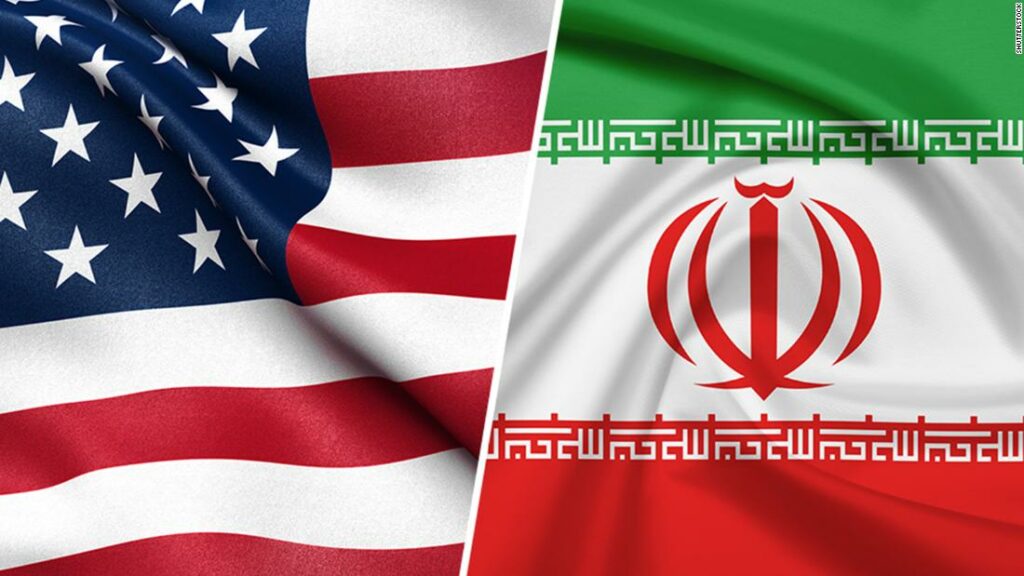US says it is working on contingency plans in case Iran continues nuclear advances and refuses to return to talks

“Any government would do this,” the official said, speaking Thursday on the margins of the United Nations General Assembly about making contingency plans if the nuclear deal formally known as the Joint Comprehensive Plan of Action falls through. “We obviously have to look at what we will do if we conclude that Iran is either not interested in coming back to the JCPOA, or its nuclear advantage is such that it doesn’t make sense for JCPOA to have been hollowed out.”The official said that the US and other participants in the talks prefer “to come back to the table,” and added that if there is any concern about a Plan B, it’s “the one that Iran, where they want to continue to build that and not be seriously engaged to return to the JCPOA.”Limited patienceThe US official’s comments came two days after Iranian President Ebrahim Raisi used his address before the United Nations General Assembly to deliver his own message. He insisted Iran is not pursuing nuclear weapons, that the US is at fault for leaving the nuclear deal and emphasized that the US has to meet its obligations under the deal first, by lifting sanctions.Raisi’s defiant stance is one reason European diplomats say they are concerned that Iran may be less flexible about negotiations, thinking it can take advantage of the Biden administration’s diminished standing on the world stage after the foreign policy crises of Afghanistan, a diplomatic spat with France and condemnation of its treatment of Haitian refugees.While the Iranian president reiterated his promise to return to talks and Iran The official said that the US and other parties still wanted to go back to the negotiating table but noted that it has been three months since the last round of talks “and since that time, Iran has continued to grow its nuclear program.” Since that time, the US and other countries involved in the nuclear talks also have not been able to get clarity on Iran’s position on the nuclear talks after Raisi’s election in early August, the official said. Iran has not given other parties to the talks a date for when they would be ready to resume negotiations, the official said. The last round of meetings in Vienna took place about three months ago. European diplomats are increasingly concerned that the Iranians may see the Biden administration’s diminished standing on the world stage — given a number of crises — as an opportunity to be less flexible at the negotiating table.”They may try to get more out of the Americans now,” warned one European diplomat.Biden administration officials do not expect that to be the case particularly because Iran has been hard to pin down throughout the entirety of the last few months, a second administration official told CNN.Making the West sweatIran has not given an indication of whether they’re willing to continue the work of the previous administration either, the senior State Department official said, or whether it will want a different framework for the talks. Finally, Raisi’s government has not given other countries any sense of whether it will send the same negotiating team or whether they will appoint a new slate of officials. Henry Rome, the deputy head of research and a director covering global macro politics and the Middle East at the Eurasia Group, said that some Iranian hardliners see the delay as an advantage. “More time affords Iran greater opportunities to make nuclear advances, and delays make the West sweat—both of which, in the eyes of some Iranian hardliners, give Iran greater leverage for when it returns to talks,” Rome says. The structural incentives for Iran to return to the nuclear deal continue to be overwhelming, Rome says. Being able to export more oil would mean more revenue, regaining access to some of the $100 billion in foreign exchange reserves frozen abroad and engage with the international financial system would be other advantages.But Rome says Iranian hawks argue that the economic benefits of the deal are overstated and that Iran has already survived former President Donald Trump’s “maximum pressure” campaign. These officials believe “the best way to relieve sanctions pressure is not to negotiate them away but to ‘nullify’ them altogether using Supreme Leader Ali Khamenei’s concept of a ‘resistance economy’,” Rome says. Raisi, speaking Tuesday to the General Assembly, said, “the United States mistakenly believed it would render us desperate and devastated, but our perseverance has yielded results and will always do.”Despite the impasse, the senior State Department official said there is wide agreement on two points among the other parties to the nuclear talks — China, Russia, the US, the UK, France, Germany and the European Union. First, that talks in Vienna need to resume as soon as possible and secondly, that they need to resume where they left off. The official said the US and other countries were willing to be patient, but that there are limits and so far, they are seeing “certainly no indication, positive indication of interest” from Iran yet about continuing talks. The US has not had any official meetings with Iran at the UN General Assembly.


